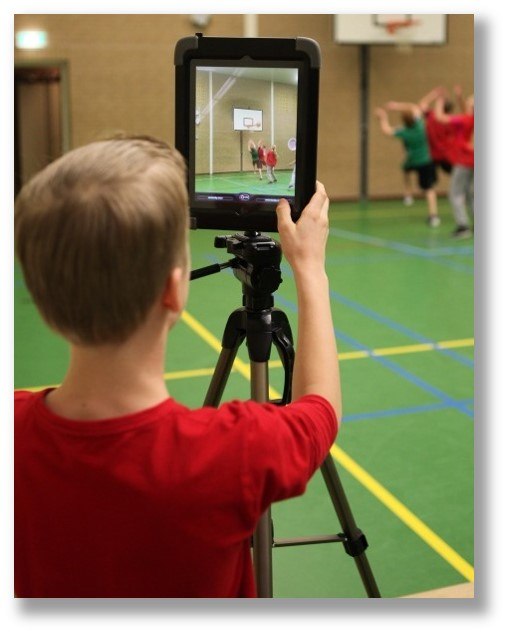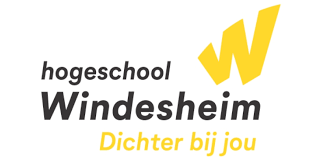Can movement games, video registration, and other digital tools improve the quality of Physical Education (PE) lessons? Windesheim University of Applied Sciences Zwolle investigated how digital applications can be implemented successfully in PE-lessons.

Many Dutch PE teachers embrace new technologies in their lessons but are wondering about the effectiveness. Windesheim University investigated the effects of digital applications in the Digitization in PE class project. Researchers investigated, for instance, how PE teachers can use digital observation tools in their lessons. A tool like video tagging can be integrated into PE, stimulating the analysis of tactical situations in games by students.
Such technology supports teachers in the selection of appropriate video images that are also directly available in the learning situation. The effectiveness and user-friendliness of such tools were examined to foster games teaching processes and to create rich learning situations
for students in team sports settings.
Pedagogical boundaries
Technological applications have their pedagogical boundaries: they should never negatively interfere with the initial objectives of PE. Also, cameras and images should not disrupt the pupil’s motivation. Technology in PE class should adhere to the pedagogical vision that we shouldn’t create an idealized image. Pupils should believe in their ability.
The goal is to teach children to move better and motivate them to incorporate physical activity into their lives permanently. The pleasure of improving movement is crucial. Technology should serve to increase this pleasure.
Other research projects
Smart Sports Exercises (2018-2021) is a collaboration with the University of Twente, focusing on new forms of (volleyball) sports training. Athletes perform training exercises in a ‘smart sports hall’ that provides high-quality video display across the surface of the playing field.
A digital-physical training system offers tailored interactive exercise activities. Exercises incorporate visual feedback from the trainer as well as feedback given by the system. They can be tailored through a combination of the most fitting exercises and setting the right parameters. In this project, expertise on embodied gaming and instruction
and pedagogy in sports training are combined.
The master’s eye (2019-2023). This programme researches to what degree the perceptual skills of PE teachers are determined by professional experience, and to what degree, and how, these skills can be enhanced by deliberate practice. Accurate perception is a crucial prerequisite for providing adequate learning support to the students as well for reliably grading their performances.
The programme focuses on new insights into the degree, and the nature of the perceptual skills of PE teachers, and on effective methods for deliberate practice to enhance the perceptual skills of PE teachers.
Life Experience Through Sport (LETS) (2020-2023) is a research programme in cooperation with Wageningen University, that aims to examine how socially vulnerable adults transfer newly learned skills and competences in a sports context to other life domains, and what societal costs and benefits these programmes bring about.

Contact
Windesheim University of Applied Sciences
Website: www.windesheim.com/research
E-mail: im.van.hilvoorde@windesheim.nl
Phone: +31 (0)6 26 388 847
